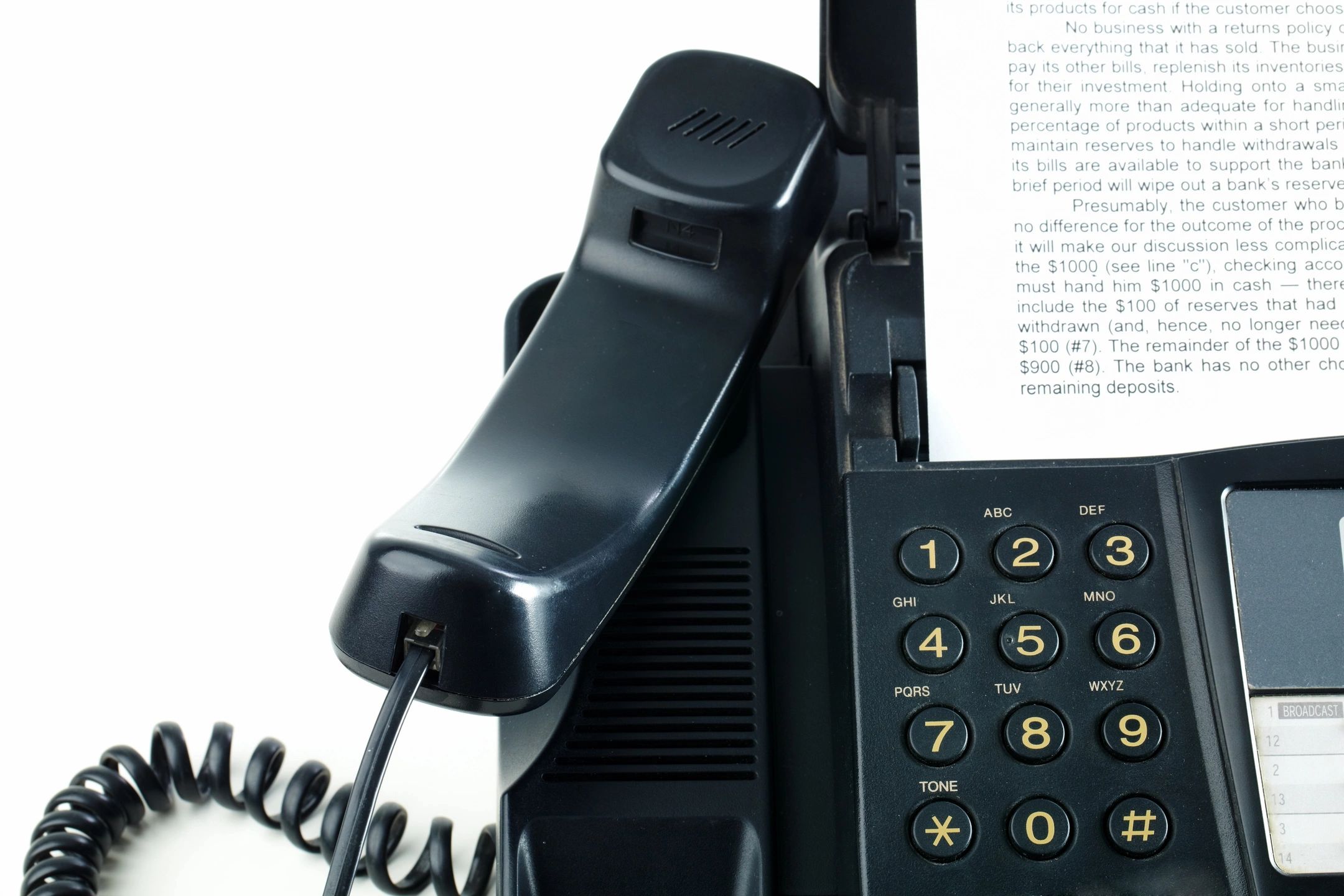In a world dominated by smartphones, email, and instant messaging, it’s natural to wonder about the fate of older communication technologies. Landline phones, once a staple in every household, are gradually becoming relics of the past. Similarly, fax machines, once hailed as revolutionary tools for document transmission, are facing an uncertain future. Are landlines truly fading into obscurity, and are fax machines next in line for extinction?
The Decline of Landlines:
Landline phones have been a fixture in homes and businesses for decades, offering reliable voice communication over dedicated copper wires. However, with the advent of mobile phones and internet-based calling services, the need for traditional landlines has diminished significantly. Mobile phones provide greater flexibility, allowing users to make calls from anywhere with cellular coverage. Additionally, Voice over Internet Protocol (VoIP) services like Skype and WhatsApp offer cost-effective alternatives to traditional landline telephony.
For businesses, the transition away from landlines has been particularly pronounced. Many companies now rely on mobile phones and internet-based communication systems to stay connected with clients and employees. This shift not only reduces operational costs but also enables greater mobility and flexibility in the workplace.
Furthermore, landlines are increasingly viewed as outdated and inefficient compared to their digital counterparts. Mobile phones offer features like text messaging, internet access, and video calling, making them a more versatile communication tool. Additionally, internet-based calling services provide higher quality audio and greater reliability compared to traditional landlines.
The Demise of Fax Machines:
Fax machines, once hailed as revolutionary tools for document transmission, are also facing a decline in relevance. While fax technology offered a convenient way to send documents over long distances, it is now seen as outdated and inefficient compared to digital alternatives.
Sending a fax requires specialized hardware, dedicated phone lines, and printed documents, making it a cumbersome and time-consuming process. In contrast, email and digital document management systems offer a faster, more efficient means of transmitting documents. Additionally, digital documents can be easily archived, shared, and accessed from anywhere with an internet connection.
Moreover, the environmental impact of fax machines cannot be ignored. The use of paper, ink cartridges, and energy consumption associated with fax transmissions contributes to waste and carbon emissions. By transitioning to digital alternatives, businesses can reduce their ecological footprint while streamlining their operations.
Here’s a look at who still relies on fax machines:
- Healthcare Industry: Fax machines are commonly used in the healthcare sector for transmitting medical records, prescriptions, and other sensitive documents. Many healthcare providers, pharmacies, and insurance companies continue to use fax machines due to concerns about data security and compliance with regulations such as the Health Insurance Portability and Accountability Act (HIPAA).
- Legal Profession: Law firms, courts, and other legal entities often rely on fax machines for sending and receiving legal documents, contracts, and court filings. Fax is considered a secure method of communication in the legal field, where confidentiality and authentication are paramount.
- Government Agencies: Many government offices, including local, state, and federal agencies, still use fax machines for official correspondence and document submissions. Faxing remains a preferred method for transmitting sensitive information between government entities due to its perceived security and reliability.
- Financial Institutions: Banks, mortgage lenders, and financial service providers may use fax machines for processing loan applications, financial documents, and transaction records. Faxing allows for the exchange of signatures and other legal documents required for financial transactions.
- Small Businesses and Independent Contractors: Some small businesses, freelancers, and independent contractors may still rely on fax machines for occasional communication with clients, suppliers, and business partners. While digital alternatives are increasingly prevalent, fax machines may be used by individuals who prefer more traditional methods of communication or lack access to digital technology.
- International Communication: In regions where internet connectivity is limited or unreliable, fax machines may still be used for international communication. Faxing offers a relatively simple and cost-effective means of transmitting documents across borders without the need for internet access.
Embracing Digital Alternatives:
As landlines and fax machines fade into obscurity, it’s essential for individuals and organizations to embrace digital alternatives to stay relevant in today’s digital age. Fortunately, the options are abundant, ranging from mobile apps and cloud-based services to virtual phone systems and electronic signatures.
For communication, platforms like Microsoft Teams, Zoom, and Slack offer comprehensive solutions for messaging, voice, and video conferencing, enabling seamless collaboration across teams and locations. These tools not only enhance productivity but also foster a sense of connectivity in an increasingly remote work environment.
When it comes to document management, services like Google Drive, Dropbox, and Adobe Sign provide efficient means of creating, sharing, and signing digital documents. By digitizing workflows and embracing paperless practices, businesses can streamline their operations, reduce costs, and minimize their environmental impact.
“Moreover, the shift towards digital communication offers numerous benefits in terms of security and reliability. Encryption technologies, multi-factor authentication, and remote access controls help safeguard sensitive information against cyber threats and data breaches, ensuring compliance with regulatory requirements.”
Enter VoIP
VoIP, on the other hand, represents a modern, digital alternative to traditional fax machines. VoIP allows users to make voice calls, send messages, and even transmit documents over the internet, eliminating the need for dedicated phone lines and physical hardware. With VoIP, faxing becomes a seamless part of the digital communication experience, integrated into a unified platform alongside voice and video calling, instant messaging, and more.
By integrating VoIP faxing, companies can update their communication infrastructure, boost productivity, and lower expenses. With the appropriate strategy, shifting from fax machines to VoIP can represent a clever and strategic choice in the contemporary digital landscape. Reach out to LG Talk now to explore upgrading your small business telephone system to a modern and adaptable VoIP platform.











 in dallas. tx by
in dallas. tx by